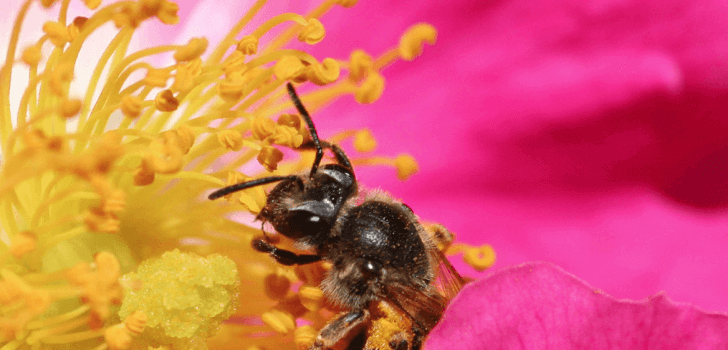A recent study has shown that apple trees that are pollinated by bees exposed to pesticides produce lower-quality fruit than trees pollinated by healthy bees. The study was conducted by researchers from the University of Guelph in Canada.
Co-author of the study Professor Nigel Raine discovered that exposure to typical doses of widely used insecticides called neonicotinoids caused bees to visit flowers less often, thereby collecting less pollen. This resulted in an apple crop that had up to 36% fewer seeds. The number of seeds within an apple are often used to measure the health of an apple crop.
This is the latest evidence that neonicotinoids prevent bees from foraging, reproducing and surviving winters. This study is the first ever to look at how insecticides affect the pollination services that are provided by bees.
Professor Raine said, “We found there was an impact on individual behavior and on the services provided by the colonies exposed to pesticides. The findings have broader implications for other crops and, in particular, wild plants, where seed counts are closely related to reproduction and species survival.”
The problem doesn’t just affect farms that use neonicotinoids. Farms that don’t use the insecticides but are surrounded by other farms that do also experience the negative effects. The use of these chemicals can negatively impact bees throughout an entire region.
Previous studies conducted by Professor Raine have shown that being exposed to neonicotinoids causes bees to experience declines in memory and navigational abilities. These are both very important attributes when it comes to pollinating plants.
Studies have also shown that neonicotinoids remain present in groundwater, and they are harmful to bird populations because they kill the insects that they prey upon. Even low levels of neonicotinoids have been shown to have very serious consequences.
The use of neonicotinoids has grown in the past decade, largely because they have been found to be safe to be used around humans. Older classes of insecticides have been found to be harmful to humans and the environment.
Stay Connected